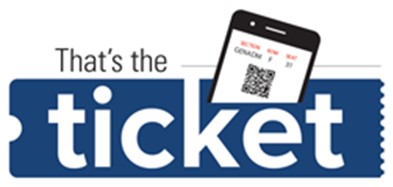You won’t need a ticket, but you will need to mark your calendar for June 11, 2019. That’s the new date for That’s the Ticket, an FTC workshop about online ticket sales.
 The workshop – originally scheduled for March – will explore the ticket sales marketplace, consider industry-wide advertising and pricing issues, and discuss ways to address deception beyond traditional law enforcement. Topics include ticket bots, the Better Online Ticket Sales Act (BOTS Act), the resale ticket market, disclosures of pricing and fees, and possible consumer confusion about search engine ads and websites of resellers. (The GAO has issued a report summarizing these issues.)
The workshop – originally scheduled for March – will explore the ticket sales marketplace, consider industry-wide advertising and pricing issues, and discuss ways to address deception beyond traditional law enforcement. Topics include ticket bots, the Better Online Ticket Sales Act (BOTS Act), the resale ticket market, disclosures of pricing and fees, and possible consumer confusion about search engine ads and websites of resellers. (The GAO has issued a report summarizing these issues.)
Commissioner Slaughter will offer opening remarks. We’ll announce the rest of the agenda as the event draws nearer.
The June 11th workshop – it’s free and open to the public – will be held at the FTC’s Constitution Center, 400 7th Street, S.W., in Washington, DC. Can’t make it to DC? We’ll webcast the event live.

It is your choice whether to submit a comment. If you do, you must create a user name, or we will not post your comment. The Federal Trade Commission Act authorizes this information collection for purposes of managing online comments. Comments and user names are part of the Federal Trade Commission’s (FTC) public records system, and user names also are part of the FTC’s computer user records system. We may routinely use these records as described in the FTC’s Privacy Act system notices. For more information on how the FTC handles information that we collect, please read our privacy policy.
The purpose of this blog and its comments section is to inform readers about Federal Trade Commission activity, and share information to help them avoid, report, and recover from fraud, scams, and bad business practices. Your thoughts, ideas, and concerns are welcome, and we encourage comments. But keep in mind, this is a moderated blog. We review all comments before they are posted, and we won’t post comments that don’t comply with our commenting policy. We expect commenters to treat each other and the blog writers with respect.
We don't edit comments to remove objectionable content, so please ensure that your comment contains none of the above. The comments posted on this blog become part of the public domain. To protect your privacy and the privacy of other people, please do not include personal information. Opinions in comments that appear in this blog belong to the individuals who expressed them. They do not belong to or represent views of the Federal Trade Commission.